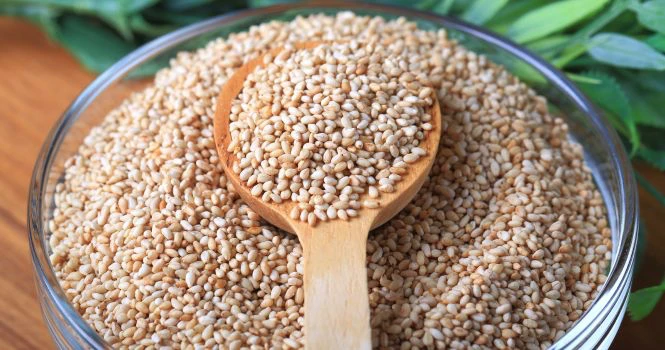Unraveling the Truth: Is Orange Good for Diabetic Patients?

Navigating dietary choices can be particularly challenging for individuals managing diabetes, where every food choice can impact blood sugar levels.
Fruits, with their natural sugars and carbohydrates, often spark confusion about their place in a diabetic diet.
Oranges are abundant in several beneficial nutrients and compounds, making them an excellent addition to a healthy diet. Key ingredients include:
1. Vitamin C: A potent antioxidant, vitamin C is vital for immune system function, skin health through collagen synthesis, and the absorption of non-heme iron from plant-based foods.
2. Fiber: Oranges contain soluble and insoluble fiber, which aids in maintaining a healthy digestive system, lowering cholesterol levels, and regulating blood sugar levels.
3. Flavonoids: These antioxidants, particularly hesperidin and naringenin found in oranges, have anti-inflammatory properties and may help reduce the risk of chronic diseases such as heart disease and cancer.
4. Folate (Vitamin B9): Important for cell division and the synthesis of DNA, folate is particularly crucial during periods of rapid growth such as pregnancy and infancy.
5. Potassium: This essential mineral helps regulate fluid balance, muscle contractions, and nerve signals. A high potassium intake is linked to reduced blood pressure and a lower risk of heart disease.
6. Thiamine (Vitamin B1): Vital for converting nutrients into energy, thiamine plays a key role in the function of the heart, muscles, and nervous system.
7. Calcium: While not present in high amounts, oranges do provide some calcium, essential for bone health and proper function of the heart, muscles, and nerves.
8. Antioxidants and Phytochemicals: Beyond the well-known nutrients, oranges are also rich in various antioxidants and phytochemicals, which may protect against oxidative stress and contribute to overall health benefits.
These components synergistically contribute to the health-promoting properties of oranges, supporting cardiovascular health, enhancing immune function, and potentially reducing the risk of certain diseases.
Now Let’s look what it has for people with Diabetes;
Glycemic index and Glycemic Load of Oranges
| Parameter | Value |
| Glycemic Index (GI) | Low (Approximately 40) |
| Glycemic Load (GL) | Moderate (Approximately 5 for a medium-sized orange) |
Glycemic Index (GI) measures how quickly a food causes an increase in blood sugar levels, with values ranging from 0 to 100. Foods with a GI of 55 or less are considered low GI, indicating they cause a slower, more gradual rise in blood sugar levels.
Glycemic Load (GL) takes into account both the GI and the amount of carbohydrate in a serving of the food to estimate how much the food will raise a person’s blood glucose level after eating it. A GL of 10 or less is considered low, indicating it has a relatively minor impact on blood sugar levels.
Is orange high in sugar?
Oranges, like all fruits, contain natural sugars, primarily in the form of fructose, glucose, and sucrose. However, compared to many processed foods and sweetened beverages, the sugar content in oranges is relatively moderate.
A medium-sized orange (about 131 grams) contains approximately 12 grams of sugar. What makes oranges a healthier option despite their sugar content is the presence of dietary fiber, vitamins, minerals, and antioxidants.
The fiber in oranges slows down the absorption of sugar, helping to prevent spikes in blood glucose levels, making it a suitable choice even for individuals monitoring their sugar intake, such as those with diabetes, when consumed in moderation as part of a balanced diet.
Can Diabetics Eat Oranges?
Yes, diabetics can eat oranges in moderation. Oranges are a nutritious fruit that, when consumed as part of a well-balanced diet, can offer significant health benefits to individuals with diabetes. They are low in calories and have a low glycemic index (GI), which means they have a minimal impact on blood sugar levels when eaten in appropriate portion sizes.
The fiber content in oranges helps to slow down the absorption of sugar into the bloodstream, preventing rapid spikes in blood glucose levels. Additionally, the vitamins, minerals, and antioxidants found in oranges can support overall health, including immune function and heart health, which are important considerations for individuals with diabetes.
However, portion control is key. Eating oranges in moderation and being mindful of the overall daily carbohydrate intake is essential for managing blood sugar levels effectively. It’s also advisable for diabetics to consume whole oranges rather than orange juice, as whole fruits contain more fiber and less sugar per serving, making them a better option for blood sugar management.
As with any dietary changes or concerns, it’s recommended that individuals with diabetes consult with a healthcare professional or a dietitian to tailor dietary choices to their specific health needs and goals.
When should oranges be avoided?
While oranges are nutritious and beneficial for most people, there are certain conditions and situations where they might need to be avoided or consumed with caution:
1. Citrus Allergy: Individuals with a known allergy to citrus fruits should avoid oranges to prevent allergic reactions, which can range from mild to severe.
2. Gastroesophageal Reflux Disease (GERD): Oranges are acidic, which can aggravate symptoms in people with GERD, acid reflux, or heartburn. It’s advisable for these individuals to monitor their symptoms and limit or avoid acidic fruits like oranges if they worsen.
3. Medication Interactions: Oranges, particularly their juice, can interact with certain medications, altering their effectiveness. For example, they can affect the metabolism of statins (used for lowering cholesterol) and some blood pressure medications. It’s important to consult healthcare professionals about potential food-drug interactions.
4. Pre-Surgical Restrictions: Patients may be instructed to avoid certain foods, including oranges, before surgery due to the risk of aspiration or interactions with anesthesia.
5. Compromised Kidney Function: Oranges are high in potassium. While potassium is an essential nutrient, individuals with kidney disease or compromised kidney function may need to monitor their potassium intake to avoid hyperkalemia, a condition where potassium levels in the blood are higher than normal.
6. Dental Health: The natural acids in oranges can erode tooth enamel over time. It’s recommended to rinse the mouth with water after consuming acidic foods like oranges to protect dental health.
In any of these situations, it’s important to seek advice from healthcare professionals to make informed dietary choices that align with individual health needs and conditions.
Frequently Asked Questions
Can a diabetic drink orange juice everyday?
Diabetics are advised to exercise caution with orange juice due to its high sugar and low fiber content compared to whole oranges.
Drinking orange juice can lead to quicker spikes in blood sugar levels. It’s best for diabetics to limit orange juice consumption and prioritize whole fruits to benefit from the fiber, which helps regulate blood sugar levels.
Can diabetics eat oranges at night?
Diabetics can eat oranges at night, but it’s important to consider the overall daily carbohydrate intake and how the fruit fits into this balance.
Eating an orange as part of a balanced snack, if within the carbohydrate allowance, can be a healthy choice due to its low glycemic index, which has a minimal impact on blood sugar levels.
But if you have gastric reflux, then avoid it at night until you recover.
What fruit is best for diabetics?
The best fruits for diabetics are those with a low glycemic index (GI) and high fiber content, such as berries (strawberries, blueberries, raspberries), cherries, apples, pears, and peaches.
These fruits help in managing blood sugar levels when consumed in moderation as part of a balanced diet.
How many mandarins can a diabetic eat?
The quantity of mandarins a diabetic can eat depends on individual carbohydrate goals and overall diet.
Generally, mandarins have a low glycemic index and are lower in sugar compared to other fruits, making them a suitable option for diabetics in moderation. It’s advisable to start with one small mandarin and monitor blood sugar levels to determine how it affects you personally.
What are Mandarins?
A mandarin is a type of citrus fruit that belongs to the orange family. It is smaller in size and has a sweeter taste compared to the common orange.
Mandarins are known for their easy-to-peel skin and their segments that can be easily separated, making them a convenient and popular snack. They are rich in vitamin C, antioxidants, and dietary fiber, contributing to various health benefits such as boosting the immune system, improving digestive health, and aiding in the prevention of chronic diseases.
Mandarins come in several varieties, including tangerines, clementines, and satsumas, each with its own distinctive characteristics in terms of flavor, size, and peelability.












